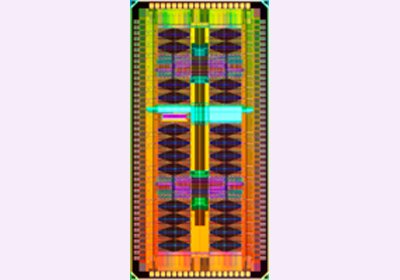IBM doubles chip performance, triples processor memory
New IBM technology breakthrough could improve chip performance by putting eDRAM memory on processors.

Sign up today and you will receive a free copy of our Future Focus 2025 report - the leading guidance on AI, cybersecurity and other IT challenges as per 700+ senior executives
You are now subscribed
Your newsletter sign-up was successful
IBM has claimed the world's fastest on-chip memory in a presentation given at the International Solid State Circuits Conference (ISSCC).
Described as a 'first of its kind' for eDRAM (embedded dynamic random access memory), the technology was designed to a 65nm process, but is expected to fit into IBM's 45nm chip roadmap for commercial manufacture.
IBM says the technology offers high-performance at lower power, using just 20 per cent of the standby power drawn by conventional SRAM memory (static random access memory), and is physically a third of the size.
'With this breakthrough solution to the processor/memory gap, IBM is effectively doubling microprocessor performance beyond what classical scaling alone can achieve,' said Dr. Subramanian Iyer, Distinguished Engineer and director of 45nm technology development at IBM. 'As semiconductor components have reached the atomic scale, design innovation at the chip-level has replaced materials science as a key factor in continuing Moore's Law. Today's announcement further demonstrates IBM's leadership in this critical area of microprocessor design innovation.'
The on-chip memory specification includes random cycle times of 2 nano second, with a latency of 1.5 nano seconds. Each cell measures 0.126 mm2 and draws 42 mW on standby, and 76 mW otherwise.
Multi-core chips in particular should benefit from the new memory technology, which will improve graphics performance for multimedia applications and games, said IBM.
Sign up today and you will receive a free copy of our Future Focus 2025 report - the leading guidance on AI, cybersecurity and other IT challenges as per 700+ senior executives
-
 Salesforce targets telco gains with new agentic AI tools
Salesforce targets telco gains with new agentic AI toolsNews Telecoms operators can draw on an array of pre-built agents to automate and streamline tasks
-
 Four national compute resources launched for cutting-edge science and research
Four national compute resources launched for cutting-edge science and researchNews The new national compute centers will receive a total of £76 million in funding